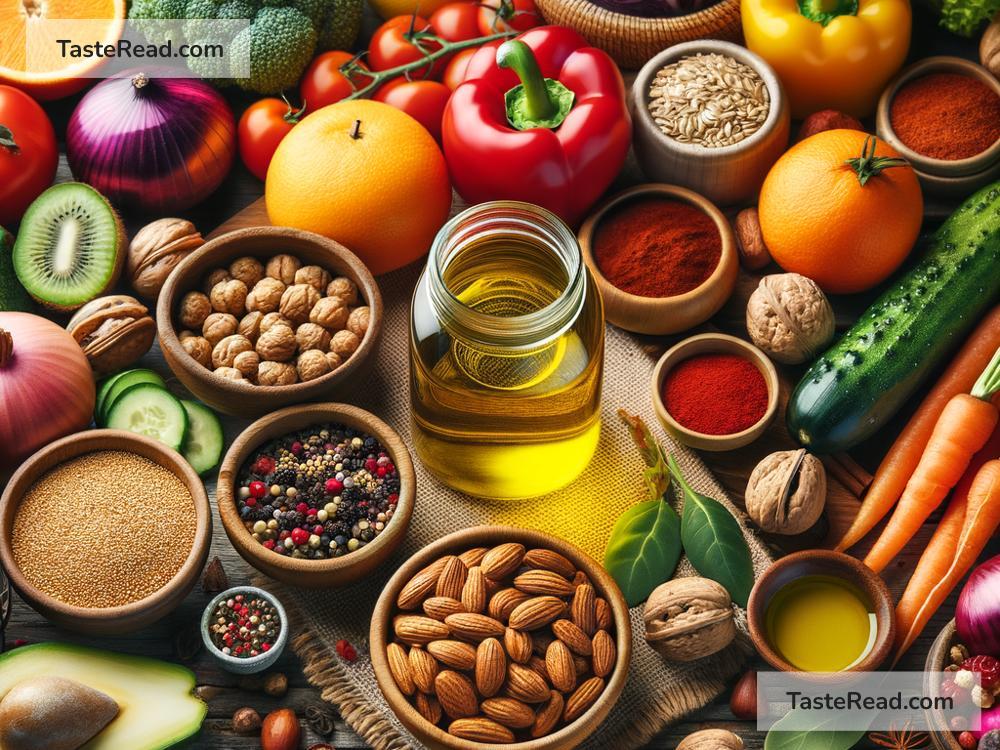Exploring the Benefits of Eating Unprocessed Foods
In today’s fast-paced world, many of us turn to convenient and ready-to-eat food options to save time. From frozen meals to packaged snacks, processed foods have become a regular part of our diets. However, the rise in processed food consumption is linked to many health issues, making it vital to rethink our eating habits. One simple yet powerful change is to shift toward eating unprocessed foods. In this article, we’ll explore what unprocessed foods are, why they’re good for us, and how they can make a positive impact on our health and well-being.
What Are Unprocessed Foods?
Unprocessed foods are foods that are in their natural state or have undergone minimal changes. This means they do not contain added chemicals, preservatives, artificial flavors, or excessive sugars. Think of fresh fruits and vegetables, whole grains, nuts, seeds, and lean meats. These are foods that haven’t been altered much from the way they were grown, harvested, or produced.
For example:
– An apple is an unprocessed food, but apple pie with added sugar, butter, and preservatives is processed.
– A baked piece of chicken is unprocessed, but chicken nuggets with added flavorings and fillers are processed.
Essentially, unprocessed foods are as close as possible to their original source.
Why Unprocessed Foods Are Better for Your Health
Unprocessed foods offer a wide range of health benefits because they are rich in nutrients and free of harmful additives. Let’s take a closer look at some of these benefits:
1. Packed with Nutrients
Unprocessed foods are naturally loaded with vitamins, minerals, and antioxidants that our bodies need to function well. For instance, fresh fruits and vegetables are full of vitamin C, potassium, and fiber. Whole grains like brown rice and oatmeal contain essential nutrients like magnesium and iron. Eating foods as nature intended means we get the maximum nutritional value without unnecessary extras.
2. Lower in Unhealthy Additives
Many processed foods are loaded with salt, sugar, and unhealthy fats to improve taste and shelf life. Over time, consuming these additives can lead to problems like weight gain, high blood pressure, and heart disease. By eating unprocessed foods, you can avoid consuming these harmful substances and reduce your risk of chronic illnesses.
3. Supports Digestive Health
The fiber found in fruits, vegetables, and whole grains helps keep your digestive system working properly. Fiber aids in digestion, prevents constipation, and keeps you feeling fuller for longer. Processed foods often lack sufficient fiber, which can contribute to digestive discomfort.
4. Promotes Healthy Weight
Unprocessed foods are generally lower in calories compared to processed options. Additionally, they help you feel full and satisfied because they take longer to digest. Eating meals made from whole, natural ingredients instead of calorie-packed snacks can help you maintain a healthy weight without feeling deprived.
5. Boosts Energy Levels
When you eat unprocessed foods, your body gets a steady, natural supply of energy. Processed foods, on the other hand, can cause sugar spikes and crashes, leaving you feeling tired. Whole foods like nuts, seeds, and whole grains provide lasting energy throughout the day.
6. Reduces Risk of Disease
There’s a growing body of research that shows eating unprocessed foods can lower the risk of diseases like diabetes, cancer, and heart disease. This is because whole foods contain powerful compounds—such as antioxidants—that help protect the body from damage caused by free radicals (harmful molecules).
The Environmental Benefits of Choosing Unprocessed Foods
Not only are unprocessed foods good for your health, but they are also better for the planet. Many processed foods require large amounts of energy, packaging, and resources during production. By choosing fresh, local, and whole foods, you can reduce your environmental footprint. Buying unprocessed foods also often supports local farmers and businesses, which promotes sustainable food practices.
Tips to Include More Unprocessed Foods in Your Diet
Switching to unprocessed foods doesn’t have to be difficult. Here are some simple tips to get started:
– Shop the perimeter of the grocery store: Fresh produce, dairy, and meats are usually found on the outer edges of supermarkets, while processed foods are often in the middle aisles.
– Cook at home more often: Preparing meals at home gives you full control over the ingredients. Try recipes with whole ingredients like fresh vegetables, lean meats, and whole grains.
– Read labels: If you need to buy packaged items, check the ingredient list. Look for products with fewer ingredients and ones you can recognize.
– Plan ahead: Meal prepping can save time and help you avoid reaching for quick processed options.
– Start small: You don’t need to overhaul your diet overnight. Begin by swapping out one or two processed foods for unprocessed alternatives.
Conclusion
Eating unprocessed foods is one of the simplest ways to improve your overall health and feel better in your daily life. These foods provide vital nutrients, lower your risk of disease, and boost your energy naturally. By making small changes like choosing fresh fruits or cooking with whole ingredients, you can enjoy the benefits of unprocessed foods without feeling overwhelmed.
So, the next time you’re planning your meals or shopping for groceries, think about choosing foods that are closer to their natural state. Your body—and even the planet—will thank you!


